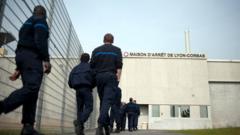Following the deaths of nine monkeys, including three critically endangered cotton-top tamarins, at the Hong Kong Zoological and Botanical Gardens, the facility has closed part of its grounds to investigate. Authorities have launched a thorough probe, implementing toxicology tests and autopsies, aiming to uncover whether an infection or toxin caused the deaths. Increased monitoring of all zoo animals has been initiated, with special focus on its mammals. The zoo, an iconic facility since 1871, enforces these measures while awaiting further directive from an interdepartmental government meeting.
Hong Kong Zoo Closures Triggered by Mysterious Monkey Deaths

Hong Kong Zoo Closures Triggered by Mysterious Monkey Deaths
Partial zoo shutdown follows fatal incident impacting critically endangered species; investigation underway.
The recent, unsettling deaths of nine monkeys, within just two days, have led to a partial shutdown of Hong Kong Zoological and Botanical Gardens, spurring a comprehensive investigation to find the cause. Among the deceased were three critically endangered cotton-top tamarins, arousing significant concern. In response, stringent monitoring and isolation procedures have been put in place, with toxicology tests and autopsies currently underway to determine whether issues like infection or toxins are to blame. John Lee, Hong Kong's leader, emphasized the urgency in containing the problem.
Established back in 1871, the zoo, located in Hong Kong’s affluent Mid-Levels, has temporarily closed its mammals section for cleaning and disinfection. Officials convened an emergency interdepartmental meeting to strategize on further measures, while the tourism bureau reported unusual behavior in two additional monkeys. Of these, one De Brazza’s monkey has died, while the other remains under close watch. This incident marks a dark moment for conservationists, given the vulnerability of the affected species and the zoo’s critical role in biodiversity preservation.
Established back in 1871, the zoo, located in Hong Kong’s affluent Mid-Levels, has temporarily closed its mammals section for cleaning and disinfection. Officials convened an emergency interdepartmental meeting to strategize on further measures, while the tourism bureau reported unusual behavior in two additional monkeys. Of these, one De Brazza’s monkey has died, while the other remains under close watch. This incident marks a dark moment for conservationists, given the vulnerability of the affected species and the zoo’s critical role in biodiversity preservation.






















